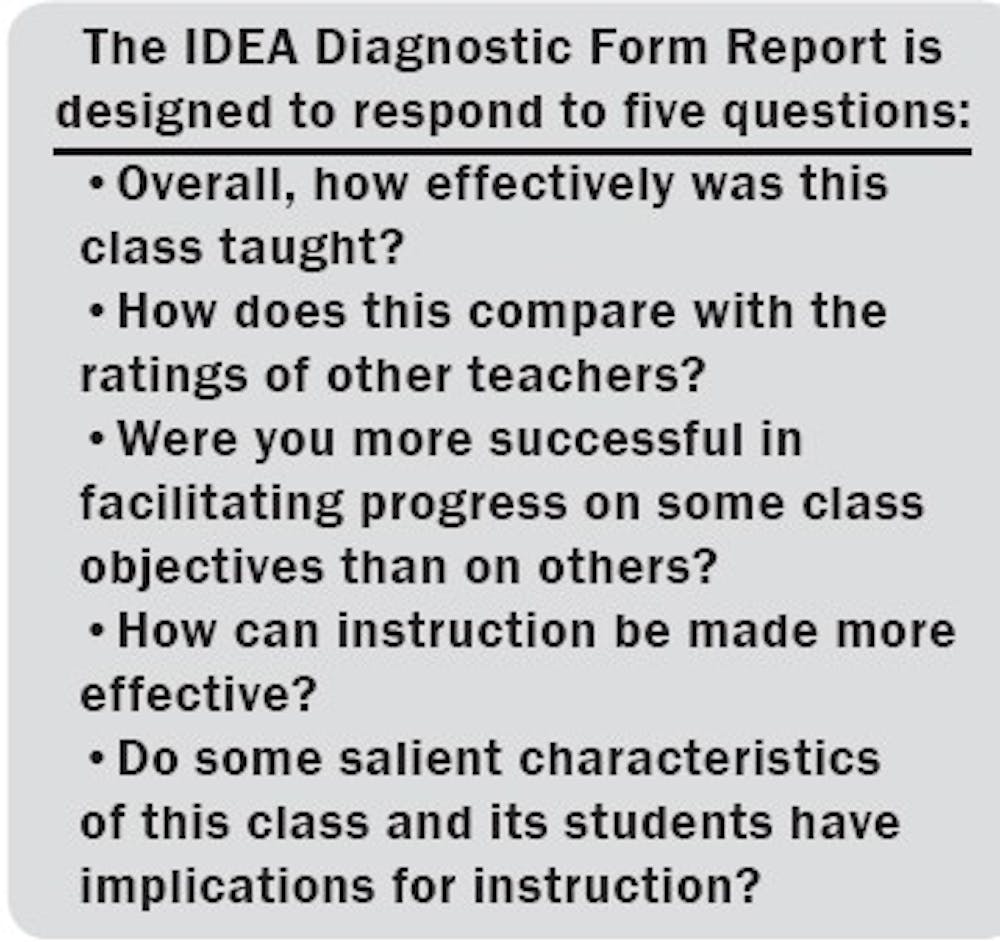Ever wonder about the results of the end-of-semester professor evaluations students fill out? University officials said students will never know.
Associate Provost Greg Heileman said the Individual Development and Educational Assessment, or IDEA evaluations, are private and for internal use only.
“(The evaluations are designed) to improve teacher effectiveness at UNM, not to inform students about what other students reported on these surveys,” he said. “The privacy of the survey information is guaranteed to faculty, and a faculty in fact has the choice of whether or not to release the survey information to his or her chair.”
Student Aaron Wright said the fact that results are kept private diminishes their effectiveness.
“I never bother to fill them out,” he said. “You can’t get a straight answer from the administration about how much they actually matter, and we never see the results anyway … It’s absolutely ridiculous.”
According to the Office of Institutional Research, UNM doesn’t track evaluation data for the University as a whole; it is up to individual departments whether they choose to retain records from year to year.
GPSA President Katie Richardson said UNM needs to make the evaluation results available to the public and hold teachers accountable for poor scores.
“I absolutely believe that the teaching evaluations at a school with a 13 percent (four-year) graduation rate should be public,” she said. “How else can we look at the areas we need to improve? They should be tracked across the whole University, not just individual departments.”
After they are filled out by students, the evaluations are sent to the IDEA center in Manhattan, Kansas, for processing and then returned to individual departments, who give them to professors.
UNM Music Professor Carla Barlow said she doesn’t think the results need to be made public.
“I feel like that is a personal decision on the teacher’s part, and I would like to believe that all teachers want to do better than they did last semester,” she said. “I incorporate the things students have told me in evaluations, but it’s not my place to say whether another professor should make their results public or not.”
Barlow said that for her, the most value comes from students’ written comments at the end of the evaluation.
Get content from The Daily Lobo delivered to your inbox
Heileman said teachers are not required to give out the survey, but said many departments strongly encourage their faculty to use it to improve their teaching.
He said student evaluations do have significant weight when determining whether a faculty member will receive promotion or tenure. He said departmental promotion and tenure committees often review several years of IDEA surveys as part of their decision.
“All tenure and promotion decisions at UNM take into account a faculty’s record of teaching, research and service,” he said. “I can tell you that from my personal experiences in serving on tenure and promotion committees during my 21 years at UNM, this is not taken lightly. Teaching is a very important part of a faculty’s overall evaluation during tenure and promotion.”
Heileman said IDEA surveys are not the only way UNM assesses faculty.
“It is common for faculty to observe other faculty in the classroom, and to provide peer evaluations as a result,” he said.






